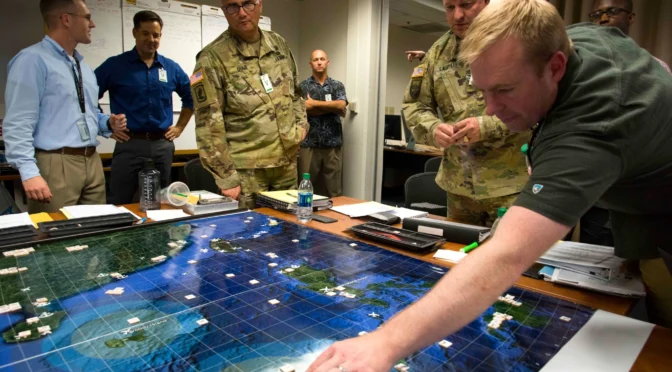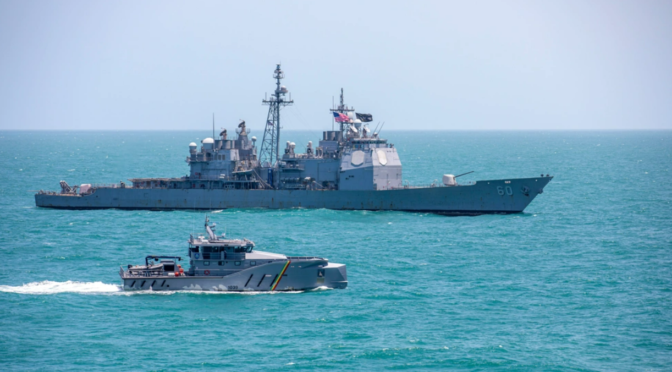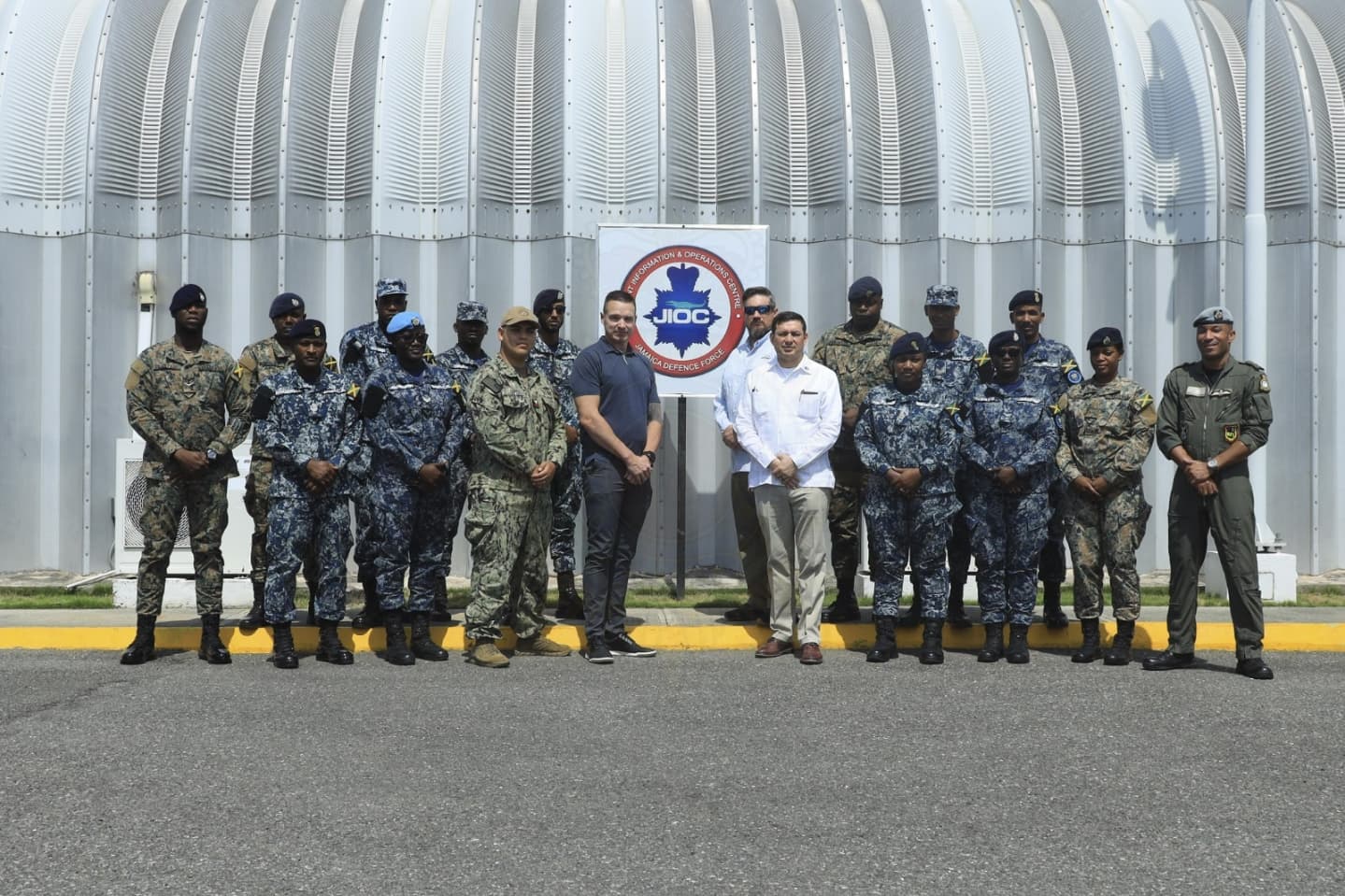By Michael Hogan
Introduction
The Navy has well-documented issues with building warships. Less discussed, but equally important, are issues with repairing the ships it already has, which jeopardizes its ability to meet its own goal of sustaining a across all platforms. As the Navy focuses on preparing for a great power conflict potentially, the Navy needs to improve not just its peacetime ship repair capability but also expand its capacity to account for wartime repair requirements. While the issues facing the U.S. shipbuilding industry are complex, and it will take time to expand shipbuilding capacity for large combatants, the U.S. shipbuilding sector does have a robust capacity to build smaller vessels that can improve the U.S. Navy’s repair capabilities. In fact, there are 125 private U.S. shipyards that are capable of building small vessels needed for repair and salvage. The United States needs to prepare now for battle damage repair by investing in repair ships, and learning lessons from recent emergent repairs and the last major war it fought at sea.
Historical Precedent: World War II
A potential war with China will be fought mostly in the Pacific theater, which forces the United States into a major logistical challenge due to the tyranny of distance from the homeland. During the last great power naval conflict, the U.S. Navy learned the importance of battle damage repair for sustaining a distant fight. One important component of victory in the Pacific was the work of naval auxiliaries that supported combatants, generally organized in Service Squadrons. Initially equipped with just oilers and other logistics platforms to replenish warships, fleet commanders realized the importance of deploying repair assets, especially fleet and salvage tugs, with these service squadrons to provide at-sea capabilities for recovering damaged vessels.
Fleet tugs, often cited in historical accounts, were essential in rendering salvage services. These tugs towed damaged vessels to areas where repairs could be made, often preventing the permanent loss of ships. The absence of fleet tugs at the Battle of Midway likely foreclosed the fate of the precious aircraft carrier USS Yorktown, as the Navy had not yet fully grasped the vital importance of salvage tugs in saving battle-damaged ships. Similarly, the carrier USS Hornet, destroyer USS Porter, and cruiser USS Atlanta were lost largely due to inadequate salvage capabilities.
As the importance of tugs became clear during the war, they were used extensively throughout the Pacific campaign to save ships, allowing temporary repairs and enabling them to return home for more permanent fixes. The United States invested heavily in this capability during the war, building more than 200 tugs and over 40 rescue and salvage ships. Floating drydocks also played a crucial role, enabling the Navy to make the repairs necessary to restore ships to seaworthiness—even if only temporarily—so they could return to the United States for more extensive repairs. When ships could not be saved, salvage vessels stripped valuable repair parts, ensuring that forward-deployed ships had access to critical resources. The ability to recover damaged ships and clear sunken vessels from ports was vital to maintaining momentum in the American island-hopping campaign, extending the time that ships could remain on station.

Current State of the Salvage Fleet
Today, the U.S. Navy’s salvage fleet is far less robust than the one that was essential to winning the Pacific campaign. After the Cold War, the Navy dramatically downsized its auxiliary ship fleet, reducing the number of vessels from 113 in 1994 to 52 in 1997, including the decommissioning of nearly all tenders. Currently, Military Sealift Command (MSC) operates only three ocean-going tugs, two rescue and salvage ships, and two submarine tenders, with the newest of these vessels commissioned in the mid-1980s. In contrast, China, the pacing threat of the United States, has 30 tugs, 46 rescue and salvage ships, and 12 tenders between its navy and rescue and salvage bureau.
As analyst and retired naval officer Brent Sadler notes in U.S. Naval Power in the 21st Century, there are no large floating dry docks capable of repairing Ohio-class submarines and large surface combatants—despite their critical role in post-accident recovery, such as the repair of the USS San Francisco after its grounding in 2005. Floating drydocks provide a mobile repair capability, allowing significant repairs to be conducted in locations where permanent infrastructure does not exist, such as forward deployed bases during a regional conflict. This results in the US Navy either needing to bring the damaged vessel back to one of the homeland drydocks, which are already at capacity with modernization and maintenance, or lease a floating drydock from private industry. The Navy must also rely on chartered commercial heavy-lift ships to move damaged vessels, such as when the USS Cole had to be transported to Pascagoula for repairs after the 2000 terrorist bombing.

Recent Incidents and Issues
The U.S. Navy has not faced significant battle damage repairs since the 2000 terrorist bombing of USS Cole, the closest a U.S. Navy ship has come to combat damage in the last 30 years. Nevertheless, repair issues during recent forward-deployed collisions, allisions, and groundings mark a good approximation of what to expect, albeit on a smaller scale. Minor repairs following a collision, such as USS Jacksonville in 2013, can be made pier side, even in foreign ports, with the assistance of a submarine tender. Although, as noted above, the tender capacity has been drastically reduced in recent years. With public shipyards operating near capacity, however, more significant collision repairs require trade-offs.
Following two 2017 surface collisions in the Pacific, USS John McCain and USS Fitzgerald both required extensive repairs prior to their return to service. McCain was repaired in Yokosuka at Ship Repair Facility-Japan vice bringing it back to the U.S. for repairs. Fitzgerald, on the other hand, was contracted out to Huntington Ingalls Industries shipyard in Pascagoula, MS. Both ships required leasing a heavy lift transport to their repair destination, like Cole. The grounding of the USS Connecticut in 2021 offers a different trade-off. After colliding with a seamount, the submarine remained at Puget Sound Naval Shipyard from December 2021 to July 2023, until entering dry dock for her previously scheduled Extended Dry-docking Selected Restrictive Availability (EDSRA), where the repairs would be made. In this case, Connecticut was “lucky” that the incident occurred close to a scheduled maintenance period.

Even if the U.S. Navy added the recommended salvage tugs and floating drydocks, the navy’s shipyards are already stretched beyond their limits with planned modernization and maintenance. For example, faced a prolonged and costly repair timeline when the submarine’s fiscal year (FY) 2016 overhaul was canceled to accommodate ballistic missile submarine and aircraft carrier maintenance, losing its dive certification in 2017. Only in early 2024 was a contract signed to begin the overhaul, nine years after its last deployment, with expected completion in 2029 at the cost of $1.17 billion. The loss of operational capability, crew experience, and the daily upkeep costs over almost 15 years could add up to be more detrimental than the price tag itself, especially when the fleet is already straining to meet operational demands.
At a time when Congress is focused on getting newly built submarines delivered promptly, the inability to use one that the U.S. Navy already owns is unacceptable. These types of delays will only become more commonplace in a conflict without expanding our salvage and repair capabilities.
Congress has shown that it is willing to address such shipyard issues, for example, allocating, but this is focused on producing new construction submarines for the U.S. Navy and the AUKUS agreement. The 2018 investment in the Shipyard Infrastructure Optimization Plan was important but it is over budget and behind schedule, and the chronic delay in ship repairs remains. In FY21 and 22, less than 40 percent of ships completed maintenance availabilities on time.
All these shortfalls come during planned, peacetime maintenance periods. If the U.S. Navy needs to make repairs to battle damage in a major conflict, they do not have the salvage capabilities to conduct repairs at sea or forward deployed, they do not have the industrial base to support the additional work, and they do not have the open shipyard space to put the damaged ships. To make U.S. ship repair shortcomings worse, China has more than 200 times more capacity for shipbuilding, including a large commercial capacity, that can likely be repurposed in time of conflict for repairs.

The Way Ahead
To address these deficiencies in repair and salvage capabilities, the U.S. Navy, Department of Defense, and Congress must learn from recent incidents and the lessons of World War II. First, the Navy should implement the recommendations from the recent Government Accountability Office (GAO) report on ship repair, such as “developing a ship industrial base strategy that aligns with the National Defense Industrial Strategy.” As part of this, the Navy needs to examine all emergent repairs spurred by modern incidents starting with USS Cole to identify gaps in planning and capabilities, and the root causes of delays. This should include where salvage and repair ships were needed and unavailable. Any needed infrastructure or platform investments, such as forward-deployed floating drydocks, should be forwarded to Congress for supplemental funding. Immediate investments in these capabilities will bolster the U.S. Navy’s ability to better perform peacetime maintenance while building capacity to absorb battle damage repair in future conflict.
Second, Congress should pass the bipartisan SHIPS for America Act, providing 10 years of funding to boost the commercial shipbuilding industry and the merchant marine. This will help to provide more shipbuilding and repair capability and capacity throughout the United States in the event of future conflicts, and train qualified personnel for the MSC that mans and operates the Navy’s repair and salvage fleet. The combination of short- and long-term investments will turn the tide on the U.S. Navy’s repair capabilities before ships are lost, while sustaining them for decades to come.
Third, the Department of Defense needs to recognize ship repair as equal to shipbuilding when prioritizing funding. Ship repair is a subset of some of the Secretary of Defense’s 17 FY26 budget priorities, and a priority of the CNO’s Navigation Plan. Repairing ships already in Navy service reduces the effect of problems in shipbuilding. Finding ways to repair ships quicker increases public shipyard capacity, but this alone is not enough. The Department of Defense needs to create its own surge capability for the desired increase in naval fleet size and invest in private industry surge capability that can be optioned in case of added battle damage repair. Allocating the requisite funding to improve capacity and capability now will better prepare the U.S. Navy for great power conflict.
Conclusion
The U.S. Navy faces a growing challenge in maintaining a combat-ready fleet. It was lucky when a recent collision between the USS Harry S Truman and a merchant vessel outside the Suez Canal required only minor repairs before the carrier could return to sea. If the Navy is to meet the demands of a major conflict, it must prioritize not only shipbuilding but also ship repair and salvage capabilities. The lessons of the past are clear—effective battle damage repair and salvage can mean the difference between victory and defeat. This means not just adding to the capacity to repair current ships but also building capacity for the larger fleet of the future and creating a surge capacity for times of conflict. By addressing these gaps now, the United States can ensure the Navy is prepared for whatever the future holds.
Michael Hogan is a Commander in the United States Navy and a career submarine officer with tours aboard both fast attack and ballistic missile submarines, most recently as Executive Officer of USS Nebraska (SSBN 739) (Blue). He is currently the Senior U.S. Navy Fellow at the Atlantic Council.
The opinions expressed are those of the author and do not necessarily reflect the official views or policy of the U.S. Defense Department, the Department of the Navy, or the U.S. government. No federal endorsement is implied or intended.
Featured Image: The Arleigh Burke-class guided-missile destroyer USS Fitzgerald (DDG 62) departs Pier 9 at Fleet Activities (FLEACT) Yokosuka, Dec. 1, 2017 to proceed to anchorage in Yokosuka Harbor aboard heavy lift transport vessel MV Transshelf in order to make underway preparations. (Photo by Petty Officer 1st Class Benjamin Dobbs)











